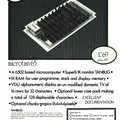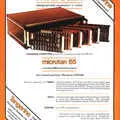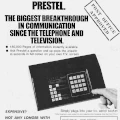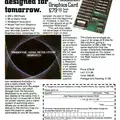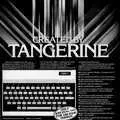Tangerine Advert - November 1981
From Your Computer
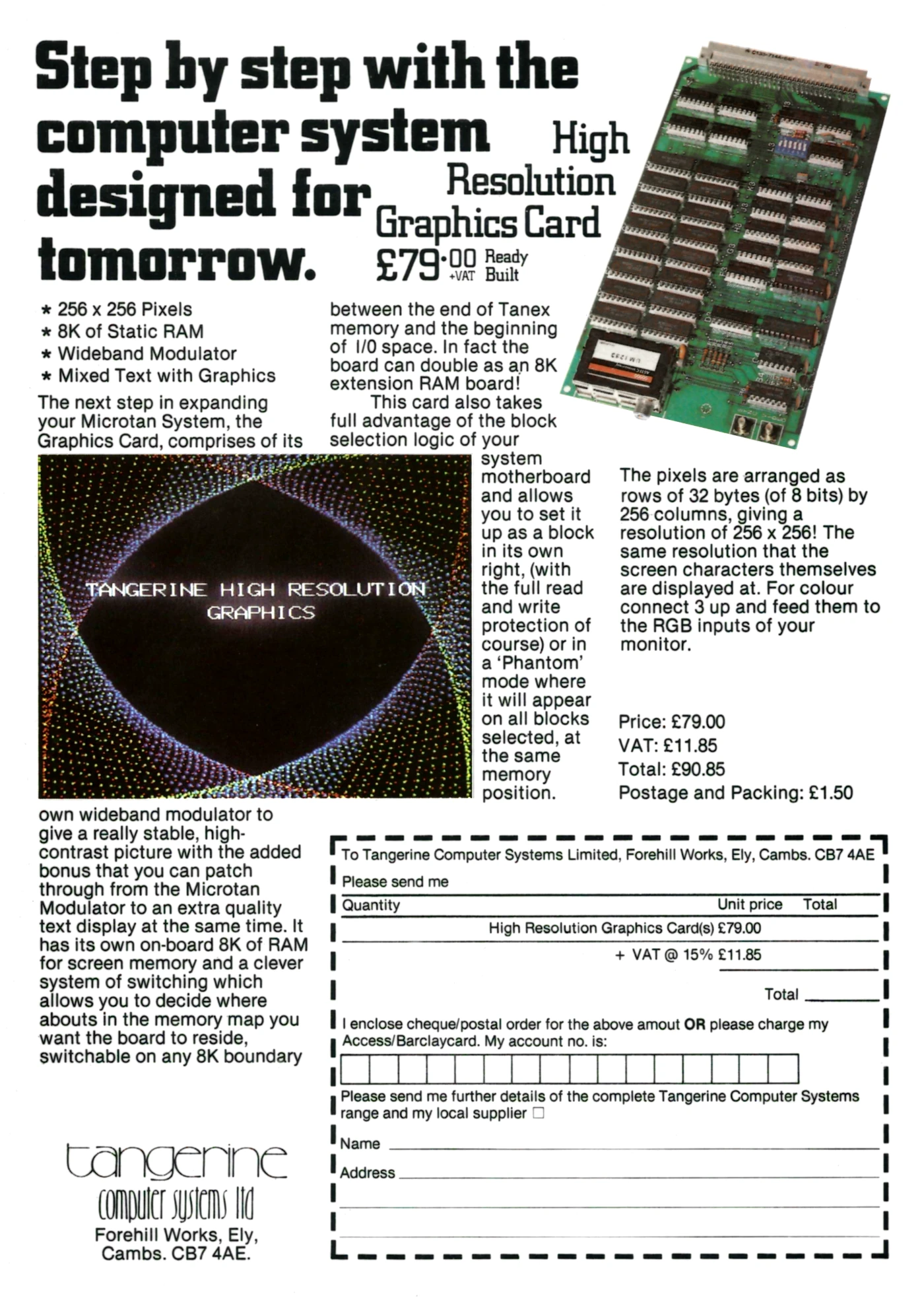
Step by step with the computer system designed for tomorrow
Tangerine Computer Systems had been founded in 1979 in St. Ives, Cambridgeshire - once the home of Clive Sinclair's Radionics company.
Its first product had been the well-received Tan 1638 video-adapter kit[1], the success of which led to Tangerine being contracted to develop the video system for Chris Shelton's Nascom 1.
Not long afterwards, Tangerine released its own microcomputer - the 6502-based Microtan 65 - and then in 1983, via its Oric Products International offshoot, launched the Oric-1 home computer, very much aimed at Sinclair's ZX Spectrum market.
In this advert though, the company is going back to its roots by offering a high-resolution graphics card, for the Microtan 65.
Providing 256x256 monochrome pixels, and available for £90.85, or about £500 in 2026, the board could also be used as an 8K memory board.
It was even possible to rig up three of the cards - one for each primary colour - in order to generate full-colour output.
The advert came out at a time just before the expected release of Acorn's BBC Micro, the computer which had been chosen to form part of the wider BBC Computer Literacy project - a scheme which along with the computer also offered a range of TV programmes and books.
As it happened, Acorn was late and the machine didn't really become available until early the following year.
The UK government had also got involved, via the Department of Industry's Microcomputers in Schools project, which was offering a subsidy of 50% to any school which did not yet own a computer, as long as it was either the BBC Micro, or Research Machines' 380Z.
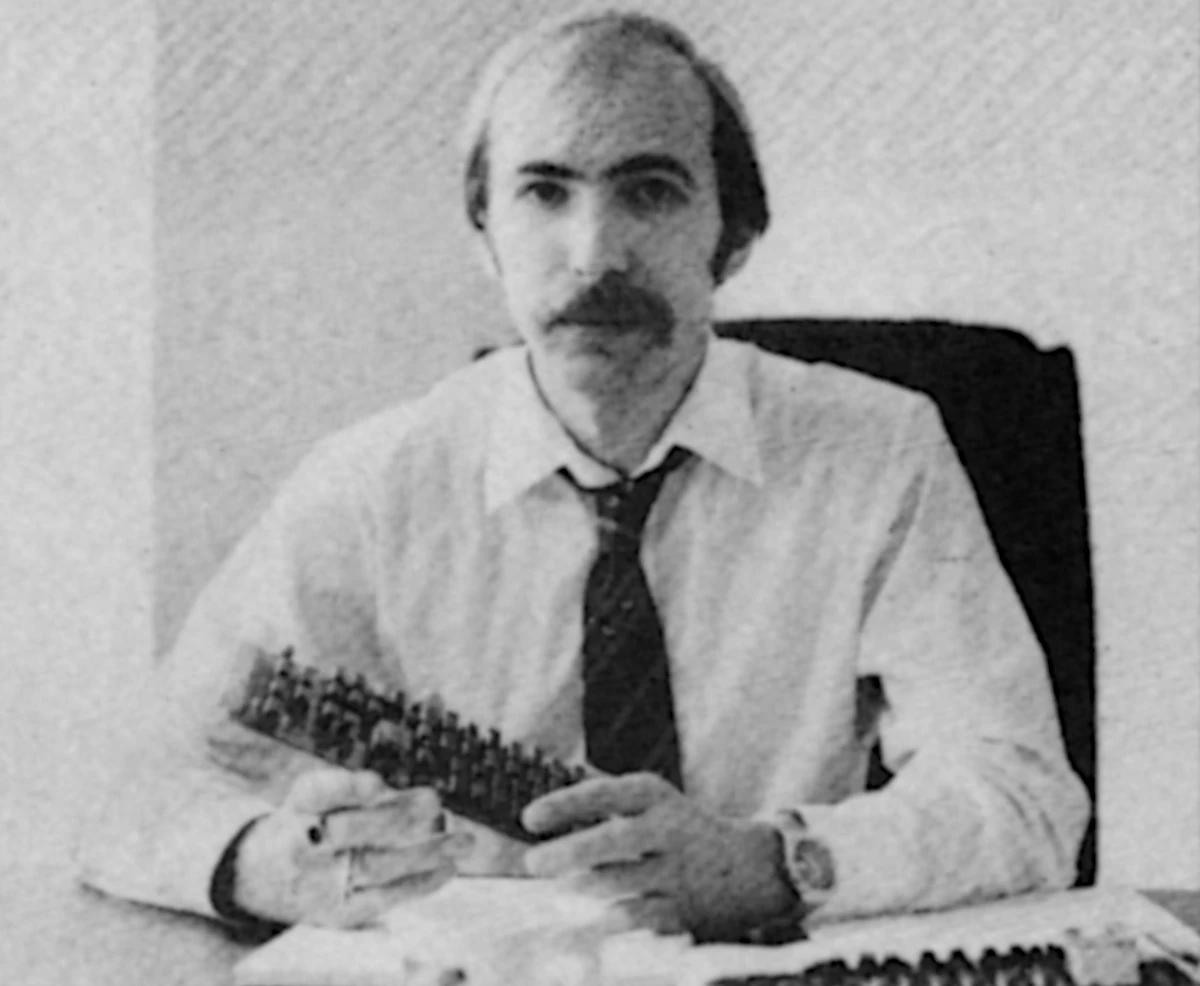
Paul Johnson of Tangerine, from Your Computer, November 1981
Tangerine's co-founder - Paul Johnson - was however not too impressed that Sinclair had not been chosen to be the BBC Micro, despite the fact that Sinclair had a proven track-record of producing micros at scale - something that Acorn had yet to demonstrate. Johnson said:
"Barry Muncaster and I are on the side of Sinclair in respect of the BBC project. The BBC should have chosen the ZX81. The [TV] series is a good idea, but the approach is wrong. The BBC should have planned a first series on the ZX81 and if it was a success and people wanted to move into larger systems, it should have planned another series"
Johnson also didn't seem too impressed with the Department of Education's microelectronics education programme, which had been announced in 1980 and which offered £9 million per year for four years in order to provide teacher training[2], saying:
"The government still has to learn how to deal with micros. The Department of Education should not be spending their £9 million on stupid research grants. It ought to go buy £9 million's worth of products and given them away. Just think of the mental power of the people who would be involved in using those products if they were to have them in schools. You can spend £9 million in no time at all on expensive executives talking about fancy schemes. If you buy £9 million's worth of products and ship it into schools, the science and mathematics teachers will be working night and day on it and that's where the value is. It would also be £9 million's worth of business for the UK computer companies[3]".
Date created: 14 November 2025
Last updated: 14 January 2026
Hint: use left and right cursor keys to navigate between adverts.
Sources
Text and otherwise-uncredited photos © nosher.net 2026. Dollar/GBP conversions, where used, assume $1.50 to £1. "Now" prices are calculated dynamically using average RPI per year.
